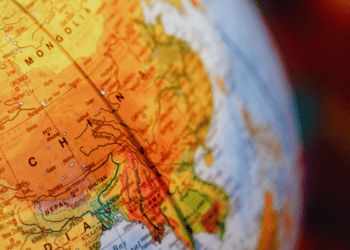February 11, 2012 – In today’s Ottawa Citizen, MLI’s Brian Lee Crowley discusses how subsidizing poorly performing parts of Canada is in truth a policy of refusing to make people face the consequences of the poor policy choices they have made over the years. He says, “And until we change that, both Canadians and newcomers will continue to head west, and the east’s weight within Confederation will diminish with every passing day, no matter how much we spend on equalization and other transfers.”
Canadians vote with their feet
By Brian Lee Crowley, Ottawa Citizen, February 11, 2012
No man is an island. What is true of individuals is doubly true of societies. When even in authoritarian societies such as Iran and China, YouTube videos from Tunisia, Britain or Argentina can be viewed the instant they are posted, even the humble and the oppressed know what life is like elsewhere.
This effortless knowledge of conditions in places half a world away is liberating for the individual, but deeply threatening to societies that people are free to leave. As long as people can “vote with their feet” by moving, underperforming societies, ones with poor standards of living, endemic violence or rampant corruption, cannot easily hold onto their people, especially their most valuable ones.
People move to make themselves better off and to offer a brighter future to their children. Thus is the world a giant social science experiment, in which competing social and political systems vie for the loyalty of their populations.
And while it may be fashionable to say that no society is better than another, where people are free to move, they make value judgments every day about the superiority and inferiority of societies and their institutions.
Those that promote human welfare and dignity, that enjoy the rule of law, legal equality, protect property and promote enterprise thrive compared to those where the powerful may exploit the weak without let or hindrance.
In this competition, Canada is a winner. We bring together in one place almost all the practices, beliefs and institutions that allow people to build a better life for themselves. The immigrants jostling at our door are voting for the superiority of Canada compared to their home countries.
It is not only countries that are in competition for people, however. Within Canada we are also running such a gigantic social science experiment.
The latest report from the front line in our domestic battle for that most precious resource – people – is to be found in the recent StatsCan report on Canada’s population. That snapshot tells us that societies west of the Ottawa River are proving more attractive than those to the east.
That is an unpopular way to describe it, again because it is unfashionable to say that one kind of society is better than another. But when large numbers of people are given a free choice of where to live, and over long periods of time they predominantly choose one place over another, we ought to pay attention.
Now, for the first time in Canadian history, more people live in the four westernmost provinces of Canada than in the five easternmost. Quebec, which for years was nipping at Ontario’s heels, has been lapped several times; Ontario’s population lead is now about five million people. B.C., with a population of 4.5 million, attracts as many immigrants as Quebec, with a population of eight million.
Quebec and the Atlantic provinces are not shrinking, but the growth in population to the west far outstrips that to the east. And those populations to the east tend to be older, to work less, to retire earlier, to pay higher taxes, to be more dependent on welfare and EI, to have more civil servants and less private sector activity. The growth rate differential is thus becoming entrenched in favour of places that favour growth and enterprise over big government.
These facts make many uncomfortable. In typical Canadian fashion the call goes up to compensate poor performers. A classic case was found in a recent oped in the National Post arguing that provinces with higher proportions of old people ought to get higher transfers from Ottawa because seniors consume lots of health care.
But no one asks why some societies in Canada age more quickly than others (a half-century ago Quebec had one of the youngest populations in Canada), and even less do they inquire whether poor choices by these societies might in fact be at the root of these massive and growing differences in population.
The fact that some provinces won the natural resource lottery is about as far as most people want to go in understanding the different provincial growth rates, and who could deny that natural resource wealth matters?
And yet the truth is it is a cop out. The wealthiest societies in the world have no natural resources to speak of (Holland, Taiwan, Israel, Hong Kong, Switzerland come to mind), whereas Nigeria and Mexico and Venezuela have oil galore and dispirited, dysfunctional societies. The world is full of Asian Tiger and post-Communist successes that prove that poverty and decline are not irreversible states. They are almost invariably the bitter fruit of bad policy.
Subsidizing poorly performing parts of Canada is in truth a policy of refusing to make people face the consequences of the poor policy choices they have made over the years. And until we change that, both Canadians and newcomers will continue to head west, and the east’s weight within Confederation will diminish with every passing day, no matter how much we spend on equalization and other transfers.
Brian Lee Crowley is the managing director of the Macdonald-Laurier Institute, an independent non-partisan public policy think tank in Ottawa: macdonaldlaurier. ca. He is the author of Fearful Symmetry: The Fall and Rise of Canada’s Founding Values.




